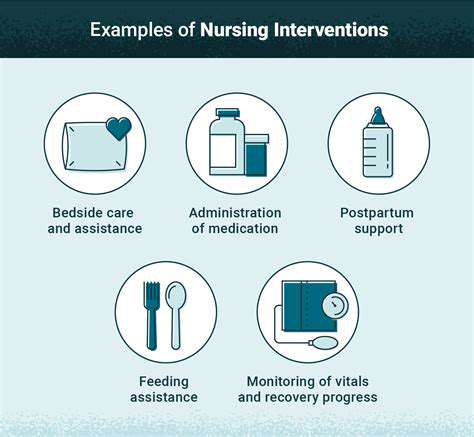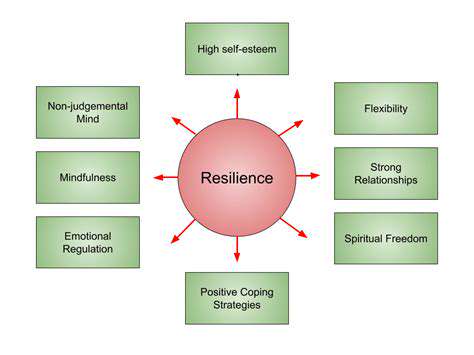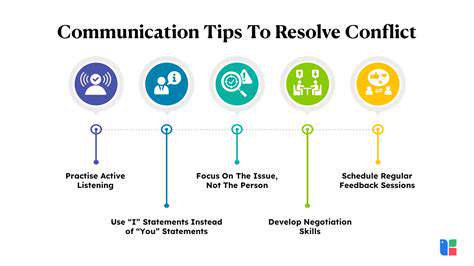Best Habits for Financial Well being

Understanding the Importance of Budgeting
Budgeting is more than just a financial tool; it's a crucial element in achieving financial stability and security. A well-structured budget allows you to track your income and expenses, providing a clear picture of your financial health. It helps you identify areas where you might be overspending and enables you to make informed decisions about your money, leading to greater control over your financial future. Understanding where your money goes is the first step to managing it effectively.
By meticulously recording every penny spent, you gain valuable insights into your spending habits. This self-awareness is essential for identifying patterns and making necessary adjustments to your financial approach. Regular review of your budget allows for adaptation to changing circumstances and ensures that your financial plan remains relevant and effective.
Creating a Realistic Budget
A realistic budget is not a restrictive measure, but rather a roadmap to financial freedom. It's essential to be honest about your income and expenses to create a budget that aligns with your actual financial situation. Don't try to overestimate your income or underestimate your expenses. A realistic budget is a foundation for long-term financial success.
When creating your budget, categorize your expenses into essential needs and discretionary spending. This helps you prioritize and allocate your resources effectively. Consider using budgeting apps or spreadsheets to organize your income and expenses. These tools can simplify the process and help you track your progress.
Tracking and Monitoring Your Budget
Regularly tracking your progress against your budget is crucial for staying on track. This involves reviewing your spending habits and identifying any areas where you might be overspending. This allows for timely adjustments to your budget as needed. Consistent monitoring ensures that your budget remains a dynamic tool, adapting to changes in your financial situation.
Utilizing budgeting tools and apps can greatly assist in tracking and monitoring your budget. These tools provide real-time insights into your spending patterns, helping you identify trends and make necessary adjustments. Regular review of your budget is key to staying on track and achieving your financial goals.
Adjusting Your Budget as Needed
Life is unpredictable, and your budget should be adaptable. Unexpected expenses can arise, and your income may change over time. A flexible budget allows for these changes, ensuring that your financial plan remains relevant and effective. Flexibility is key to navigating life's financial challenges and maintaining a healthy financial outlook.
Regularly reviewing and adjusting your budget is essential to remain on track. This allows for incorporation of new income sources or expenses as they arise. Be prepared to make adjustments to your budget as your circumstances evolve. This proactive approach ensures your financial plan remains aligned with your current situation.
Saving for the Future: Building a Strong Financial Foundation
Budgeting: The Cornerstone of Financial Security
Creating and sticking to a budget is crucial for saving for the future. A well-defined budget allows you to track your income and expenses, identify areas where you can cut back, and allocate funds towards your savings goals. This meticulous process provides clarity on your financial situation, empowering you to make informed decisions about where your money goes and ultimately, how much you can realistically save each month. By understanding your spending habits, you can identify unnecessary expenses and redirect that money towards your financial objectives. It's not just about cutting costs; it's about consciously choosing where your money goes, allowing you to build a strong financial foundation.
A budget isn't a restrictive tool; it's a roadmap to financial freedom. By carefully categorizing your spending (housing, transportation, food, entertainment, etc.), you gain a comprehensive understanding of your financial health. Regular review and adjustments to your budget based on changing circumstances are essential for maintaining a sustainable savings plan and achieving your long-term financial goals.
Investing Wisely: Growing Your Savings
Once you have established a solid savings base, it's important to invest wisely to maximize your returns. There are various investment options available, each with its own level of risk and potential reward. Understanding these nuances is key to making informed decisions aligned with your risk tolerance and financial goals. It's crucial to research different investment options, such as stocks, bonds, mutual funds, and real estate, to find the best fit for your individual circumstances. Diversification is essential to mitigate risk and potentially enhance returns, safeguarding your investments against potential market fluctuations.
Consulting with a financial advisor can provide valuable guidance and insights tailored to your specific needs and goals. Their expertise can help you navigate the complexities of the investment world and develop a personalized strategy for achieving your financial aspirations. Remember, investing is a long-term game, and patience and discipline are essential for sustainable growth.
Emergency Fund Essentials: Protecting Your Progress
A crucial component of a strong financial foundation is an emergency fund. This fund serves as a safety net to protect you from unexpected expenses, such as job loss, medical emergencies, or car repairs. Having a readily available emergency fund provides peace of mind and helps you avoid accumulating high-interest debt during unexpected financial hardships. The amount you should aim for in your emergency fund depends on your individual needs and circumstances, but it's generally recommended to have enough saved to cover at least three to six months of living expenses.
Debt Management: Minimizing Financial Strain
Managing debt effectively is vital for achieving financial stability. High-interest debt, such as credit card debt, can significantly hinder your ability to save and invest. Developing a debt repayment plan is crucial to reduce the burden of interest payments and free up more money for savings. Explore strategies like the debt avalanche method (paying off the highest-interest debt first) or the debt snowball method (paying off the smallest debts first to build momentum). Consider seeking professional guidance if you're struggling to manage your debt effectively. Efficient debt management is a key step toward financial freedom.
Long-Term Goals: Planning for the Future
Beyond short-term financial goals, it's important to consider long-term objectives, such as retirement planning, buying a home, or funding your children's education. Developing a comprehensive plan that outlines your long-term financial goals and the steps needed to achieve them is essential. Retirement planning involves estimating your future needs and developing a savings strategy to meet those needs. Taking proactive steps early on to save for retirement and other long-term goals will significantly enhance your future financial well-being.
Understanding the different types of retirement accounts available, such as 401(k)s and IRAs, and how they work is critical. By starting early and consistently contributing to these accounts, you can build a substantial nest egg for your future.
Financial Literacy: Empowering Yourself for Success
Understanding Your Finances
A crucial first step towards financial well-being is understanding your current financial situation. This involves meticulously tracking your income and expenses, identifying areas where you're spending more than you earn, and recognizing potential debt burdens. Taking the time to analyze your financial statements, whether it's a simple spreadsheet or a sophisticated budgeting tool, will provide invaluable insights into your spending habits and help you establish a solid foundation for future financial decisions.
Understanding your income sources, both current and potential, is equally important. This includes not only your salary but also any other sources of income, such as investments, side hustles, or passive income streams. Analyzing this data will provide a comprehensive picture of your financial capacity and allow you to plan for future financial goals more effectively. Be realistic about your income and expenses, avoid overestimation, and be ready to adjust your plans as needed.
Creating a Budget
A budget is a roadmap for your financial journey, outlining your income and expenses to ensure you're spending wisely and saving effectively. A well-structured budget allows you to allocate funds for essential needs, such as housing, food, and transportation, while also setting aside money for savings, debt repayment, and future investments. Regularly reviewing and adjusting your budget is crucial, as your financial circumstances may change over time.
Effective budgeting involves more than just tracking expenses; it requires actively identifying areas where you can cut back on unnecessary spending. By analyzing your spending patterns, you can pinpoint areas where you're overspending and implement strategies to reduce these expenses, freeing up funds for savings or investments. This might involve negotiating bills, finding cheaper alternatives, or simply adopting more mindful spending habits.
Saving for the Future
Saving for the future is paramount to achieving financial security. Whether it's saving for a down payment on a house, a child's education, or retirement, having a dedicated savings plan is essential. Establishing realistic savings goals and creating a consistent savings plan, even if it's a small amount each month, will lay the groundwork for a secure financial future. This involves understanding the power of compounding interest and how it can exponentially increase your savings over time.
Managing Debt Effectively
Debt management is a critical aspect of financial literacy. Understanding different types of debt, such as credit card debt, student loans, or mortgages, is crucial. Develop a strategy for tackling your debt, prioritizing high-interest debts and creating a repayment plan. Explore options like debt consolidation or balance transfer credit cards to simplify your repayment process and potentially reduce interest payments. Avoiding unnecessary debt is equally important; spending within your means and making informed financial decisions will help you stay out of debt.
Investing Wisely
Investing wisely is a crucial aspect of long-term financial security. Understanding different investment options, such as stocks, bonds, or mutual funds, is key to making informed decisions. Researching and understanding the risks and rewards associated with each investment option is essential. Diversification and a long-term investment strategy are critical for maximizing returns and minimizing potential losses. Seeking advice from qualified financial professionals can provide valuable insights and guidance.
Building Good Credit
Building and maintaining good credit is essential for securing favorable loan terms and credit card rates in the future. Paying your bills on time and keeping your credit utilization low are critical factors in maintaining a strong credit score. Understanding your credit report and regularly checking for errors is essential to ensuring accuracy. Good credit history opens doors to better financial opportunities and helps you avoid potential financial pitfalls down the road.
Read more about Best Habits for Financial Well being
Hot Recommendations
-
*Guide to Managing Gout Through Diet
-
*Best Habits for Financial Well being
-
*How to Build a Routine for Better Mental Health
-
*How to Eat Healthy on a Budget [Tips & Meal Ideas]
-
*Guide to Practicing Self Acceptance
-
*How to Incorporate More Movement Into Your Day
-
*Guide to Managing Chronic Pain Naturally
-
*Guide to Building a Reading Habit for Well being
-
*Top 5 Weight Loss Supplements That Actually Work
-
*Best Exercises for Postpartum Recovery [Beyond Abdominal Work]











